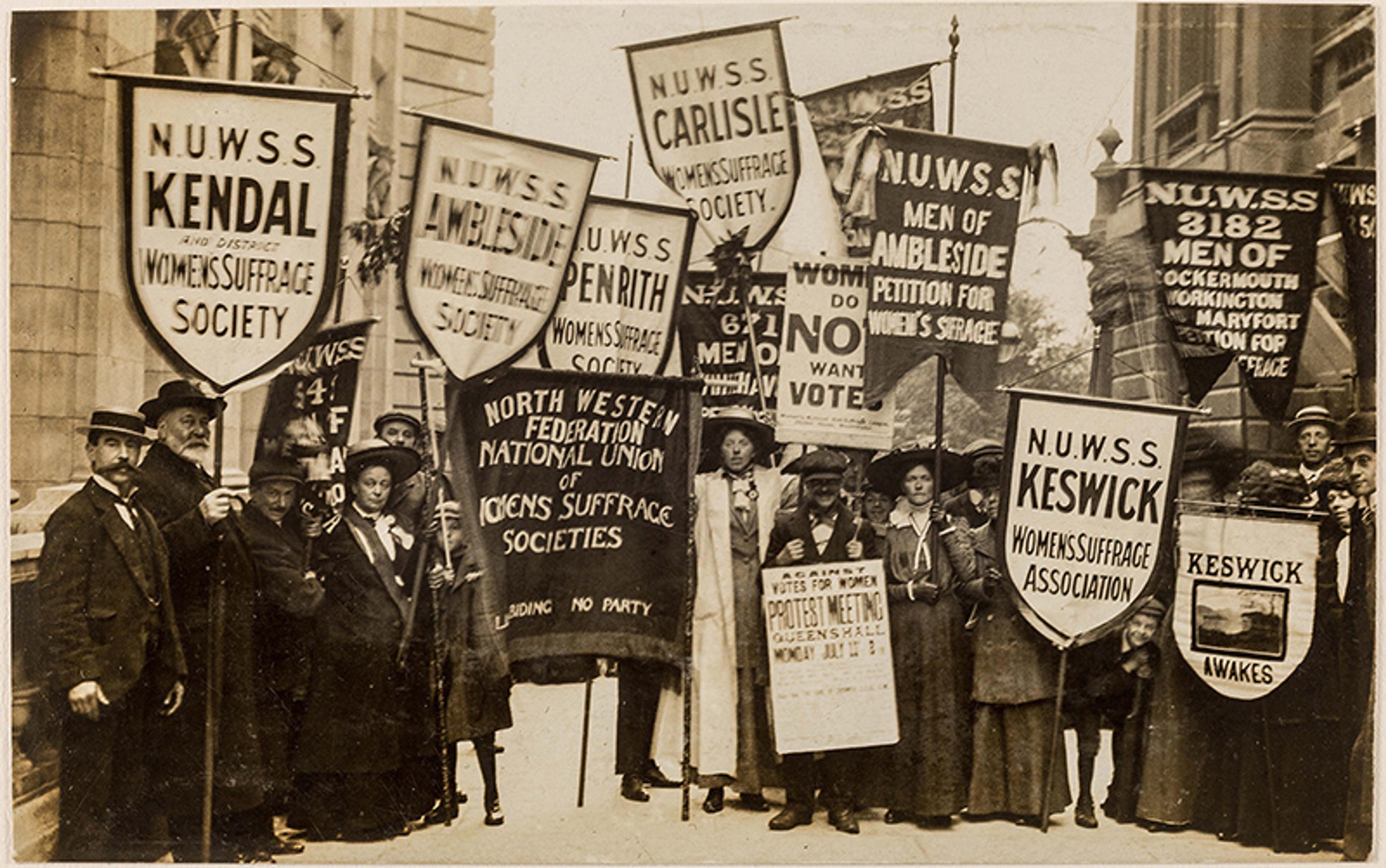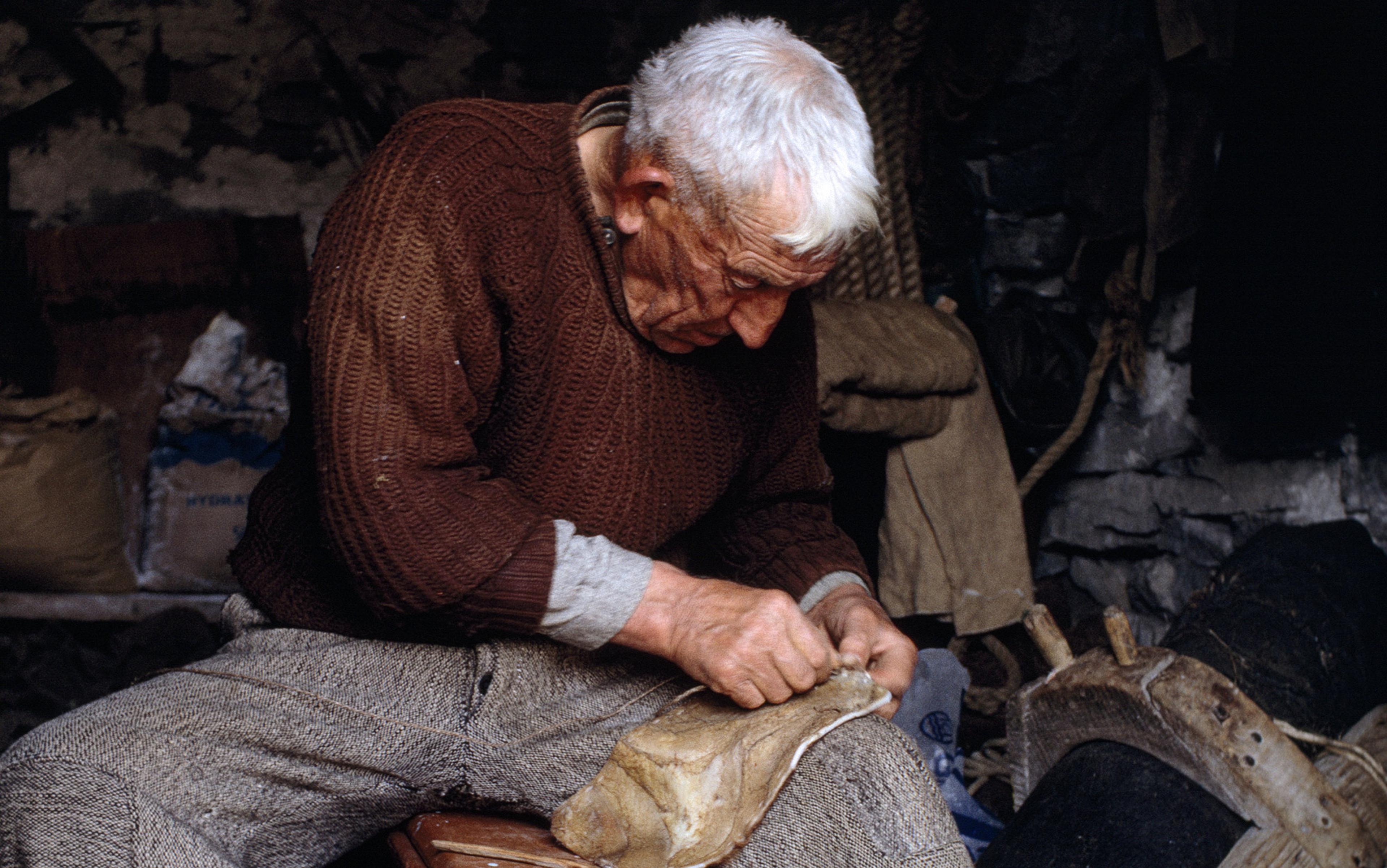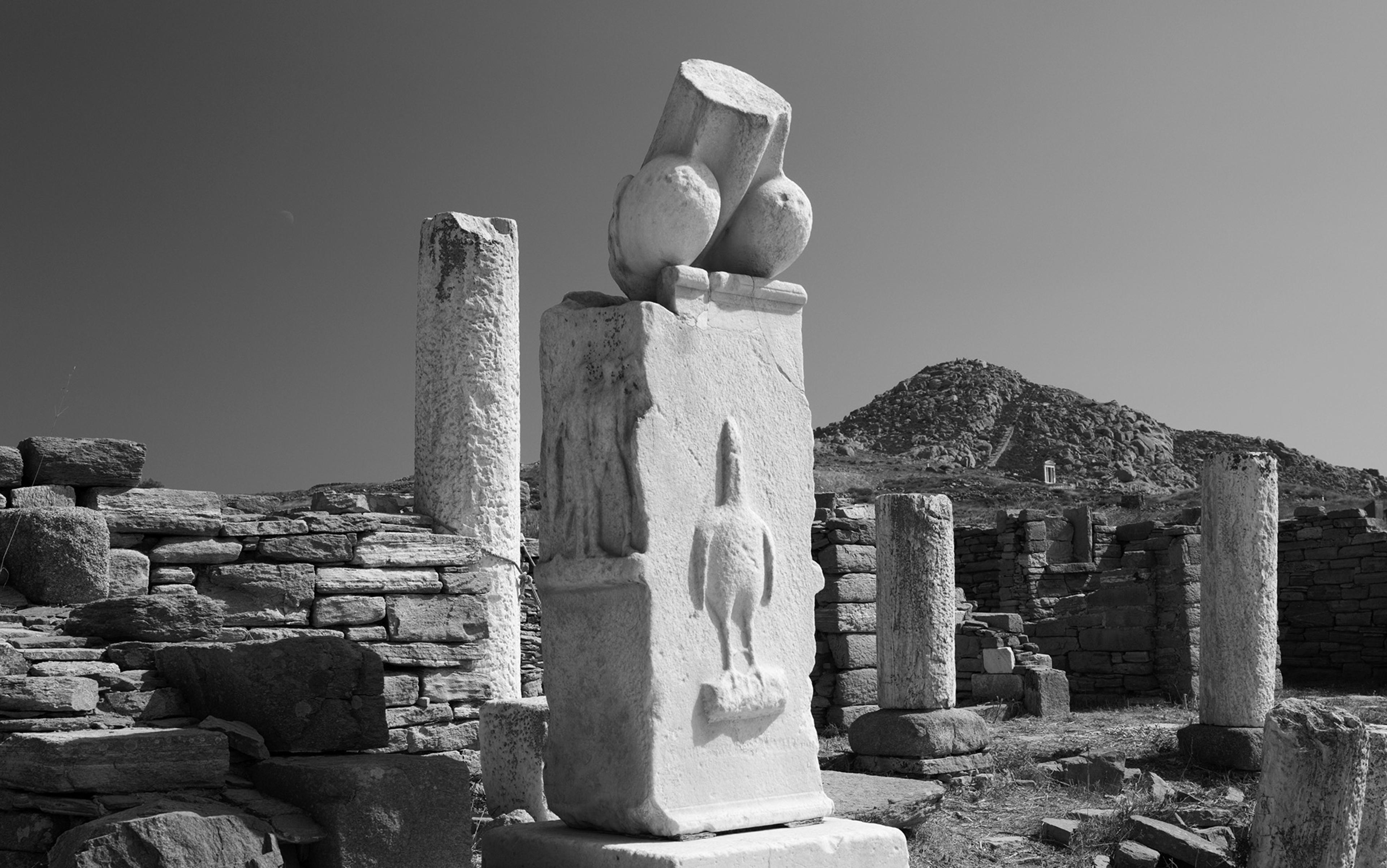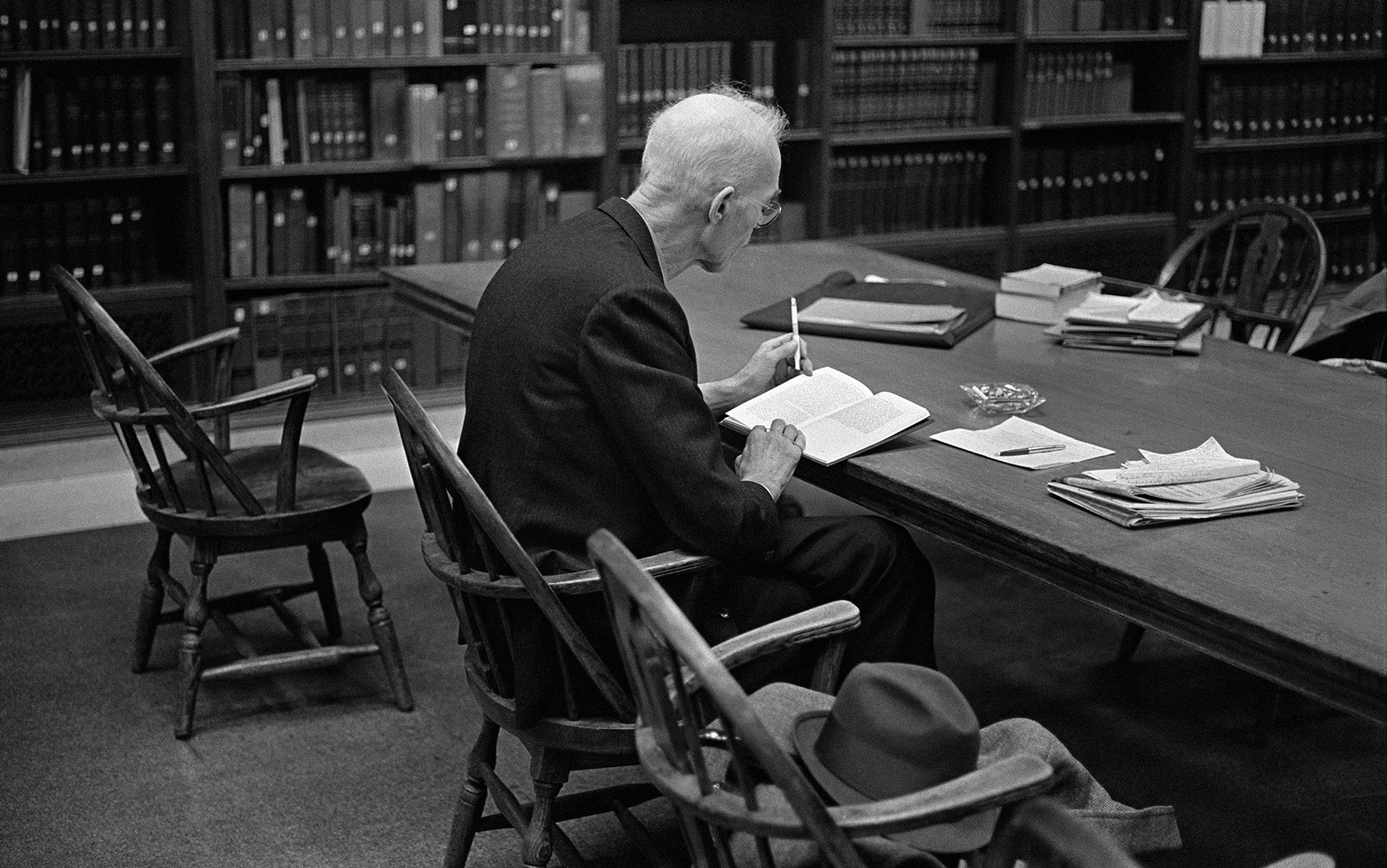I’m an Aristotle scholar but also an enthusiast for his ideas. I’ve studied his work in the original Greek, and even made a pilgrimage to his birthplace and the various places he lived. He was the most brilliant philosopher ever to have lived. I believe that his Nicomachean Ethics offers us a guide for how to live good lives and flourish. Oddly, though, for a writer whose thinking was so clear and, in many ways, modern, people with radically different stances have tried to claim him for their own.
He often features as a darling of Right-wing ideologues: his Politics is the first text in Benjamin Wiker’s 10 Books Every Conservative Must Read (2010); his authority is invoked on the Breitbart News website. Yet he is celebrated by Marxists for identifying the importance of economic factors in political history, having been heroised in Hugo Gellert’s Karl Marx’ ‘Capital’ in Lithographs (1934). Over the past decade, Aristotle’s face has appeared in Greek wall-art protesting against austerity along with his statement that poverty engenders revolution and crime. On the other hand, his (misinterpreted) views on elites, women and slavery in his Politics are often censured, especially since the advent of ‘cancel’ culture. Yet he has a significant record and potential as a radical and reforming force. This has been overlooked because his views on constitutional issues, the equality of women and even slavery have often been misrepresented, distorted and downright falsified.

Aristotelian street art by WD, Exarchia, Athens, 2012. Courtesy the artist
When Charles II landed on Dover Beach to restore the English monarchy on 25 May 1660, the minister opened his welcome speech with ‘Nomon empsuchon ton Basilea vocat Aristoteles’ (‘Aristotle calls the King ensouled law’). His claim was entirely incorrect. Aristotle’s surviving treatises never say any such thing; his discussions of monarchy show that he would never condone a constitution in which the monarch’s control of the judiciary was absolute. The same misattributed ‘Aristotelian’ statement recurred in sermons and speeches throughout Charles II’s reign. At the very coronation in 1661, the Bishop of Worcester’s sermon fulminated against the incompetence of ordinary people to govern, since they ‘intended by God and nature (saith Aristotle) to be servants, as being of low and servile dispositions, and such as have not wit enough to govern themselves, and much less to govern others.’
Aristotle’s Politics, falsified, was so important in Restoration political discourse because it had forever changed Renaissance and subsequent political theory. Royalists were sensitised to the need to mobilise Aristotle because his discussion of the virtues and vices of different constitutions had been deployed (with far more fidelity to Aristotle’s text) by the classical Republicans opposed to Charles I. John Milton’s The Tenure of Kings and Magistrates, published one month after Charles I’s execution in January 1649, justifies regicide where a king has made himself answerable only to God; Milton used Aristotle’s definition of a legitimate monarch in the Politics as one whose power is held only in trust, being an inalienable possession of the people. Where a monarch is unaccountable to the people, he is effectively the worst kind of tyrant.
The ‘classic’ of Republican Aristotelianism was James Harrington’s utopian The Common-Wealth of Oceana (1656). While Harrington complains several times that Aristotle is not Republican enough, his own thought derives from the polity aiming at the Good Life in the Politics, especially the principle of rotation of magistracies, an agrarian law to guard against inequality in wealth and the ideal of a citizenry based on small landowners. Republican authors including Milton and Harrington triggered a virulent defender of the monarchy in 1677 to decry ‘that thread-bare Topick out of Aristotle, which is so perpetually in the mouths of all Democratick Factious people, That Monarchy is apt to degenerate into Tyranny.’
The tide turned again with the Glorious Revolution of 1688. This momentous change in the constitution was accompanied by publications in its defence, putting Aristotle’s critique of monarchy at the centre of the radar. Suddenly, the Aristotelian argument that kings rule on the basis of a contract with their people – a principle that still underpins the British constitution today – became not only acceptable but mainstream ideology.
Aristotle returned to political debates with the Great Reform Act of 1832 and the emergence of working-class activism and Chartism. There was discussion of whether Aristotle had actually said that independent voting was impossible without a secret ballot (one of the Chartists’ demands; Aristotle’s true view is unfortunately not clear). Anti-democratic authors continued inaccurately to insist that Aristotle deplored democracy, leading to his condemnation, in terms similar to the statements of would-be Aristotelian cancellers today, by activists for reform who did not read his own words. Yet, once the trade union movement began to take off in the last three decades of the 19th century, Aristotle began to be consulted in detail.

View of the Great Chartist Meeting on Kennington Common by William Edward Kilburn, daguerreotype, 10 April 1848. Courtesy Wikipedia
An influential history of trade unions pointed to Aristotle’s observation on the tyrant that the means deployed ‘to maintain the mastery as long as possible, consist in this especially, to suffer neither common banquets nor political unions, nor education in common … but to guard against everything which can excite in the people these two qualities – self-consciousness and mutual confidence.’ In 1884, a young Leeds lawyer, William Trant, published Trade Unions: Their Origin and Objects, Influence and Efficacy, which was reissued by the American Federation of Labor in 1888; he praises Aristotle’s statement in Politics that the most perfect commonwealth ‘provides for the happiness of all its members. The fact that the great philosopher conceived such a noble sentiment so long ago is in itself remarkable.’
Aristotle was emphatic that all children should receive the same education in publicly run institutions
The campaign for universal suffrage was given an unexpected boost in 1891 with the publication of the sensational discovery of papyri containing the Aristotelian Constitution of the Athenians. Here was a historical example of a democracy with highly accountable, annually elected leaders and universal (except for slaves) male suffrage, without restrictions according to property ownership. It had flourished for 170 years. The British press went into overdrive; dozens of articles about the new classical text appeared, for example in the popular periodical Illustrated London News.
Radical organisations trawled Aristotle for support of their aims. A leader in The Workman’s Times entitled ‘A New Labour Party’ insightfully recommends that Aristotle’s political writings would be essential to a fully enfranchised citizenry precisely because they reveal the potential problems any democracy would face. John Richardson’s How it Can be Done: or, Constructive Socialism (1894) makes impressive political use of Aristotle’s Nicomachean Ethics in criticising the argument that proletarians are free and enter of their own volition into contracts with their employers: Aristotle ‘has collected a number of instances in which, though the will is nominally free, the action cannot in any sense be called voluntary’.
Socialist campaigners asserted that education was essential both to the improvement of the condition of the working class and to the international stature of Britain, ‘for we believe with Aristotle, who said: “All who have meditated upon the art of governing mankind have been convinced that the fate of empires depends on the education of our youth.”’ We would do well today to remember that Aristotle, living at a time when the rich had their offspring educated privately, was emphatic that all children and teenagers, rich and poor, should receive the same education in publicly run institutions in all matters of collective concern.
Aristotle supplied fewer patently helpful passages to advocates of women’s emancipation. Opponents invoked his statements in Politics that women were but second-class citizens, and that their ‘inoperative’ capacity to deliberate must exclude them from participation in government. Since Aristotle was adamant that all polities should be capable of altering their constitutions in response to new evidence or arguments, he would have approved of those advocates of women’s rights who honed their own positive arguments by wrestling with these sentences. The Putney and Fulham branch of the Women’s Social and Political Union trained its members in dealing with opponents who cited canonical authors against the suffrage cause, in 1910 hosting a series of lectures, followed by debates, on texts including Aristotle’s Politics.
But feminists, like supporters of universal suffrage for men, also found ways to marshal arguments from other works of Aristotle’s to undermine their opponents’ claims to have the monopoly on this thinker’s authority. Recently, some feminist philosophers have pointed to Aristotle’s admiration of personal qualities usually socially gendered ‘feminine’, such as capacity for care, kindness, pity and generosity. Although his definition of the individual who has achieved the highest state of virtue and therefore felicity (eudaimonia) is gendered male, the example he adduces is of the goddess Thetis, a mother, and her tactful intercession with Zeus on behalf of her son. His choice of supreme instance of properly selfless philia (love or friendship) is another mother, Andromache, who tried to send her infant son away to safety even though he might never be grateful to her.
As early as the late 17th century, a few writers leveraged Aristotle in arguing for the excellence of which women were capable. Theophilus Dorrington, in his The Excellent Woman (1692), uses Aristotle’s Rhetoric to argue that intelligence is far from an elite male prerogative, and associates individuals of both sexes with several virtues and their correlative vices discussed in both the Nicomachean Ethics and the Eudemian Ethics.
‘I like old Aristotle prodigiously, though I now and then enjoy a laugh at some of his notions’
Notwithstanding the constant discouragement, and for all their supposed intellectual and moral inferiority, some women from the early 18th century were plainly reading Aristotle themselves. A 1705 consolatory essay dedicated by Lady Frances Norton to a bereaved friend recommends finding solace through the pursuit of virtue. Aristotle tells us to be truthful, to resist vices, to develop profound friendships, forswear worldly ambition and avoid inconstancy. Mrs Hannah Halliday, a Somerset Nonconformist prosecuted for assembling with her brethren to worship, wrote in 1752 to a local Justice of the Peace to protest. She cites Aristotle as her witness, in favour of the right of humans, by nature mild and gentle, to assemble freely and to hold divergent views.
The novelist Lady Georgiana Chatterton published Extracts from Aristotle’s Works (1875), focusing on his Virtue Ethics, which she had translated herself. The redoubtable feminist and anti-poverty campaigner Caroline Cornwallis read Aristotle in Greek, discussing his ethics with a male correspondent, and announcing: ‘I like old Aristotle prodigiously, though I now and then enjoy a laugh at some of his notions.’ George Eliot was studying Aristotle’s Nicomachean Ethics in 1852. But she also discussed Aristotelian natural science with her partner, George Lewes, in 1861, and was closely involved with the production of his Aristotle: A Chapter from the History of Science (1864).
Women were at last attending lectures on Aristotle’s ethics organised by the Cambridge Association for the Higher Education of Women in 1878-79. But women who appreciated Aristotle were attacked during the misogynist backlash against female university education. A caricature in the Glasgow University Magazine contrasts a beautiful lady with books labelled MUSIC and ART, indicating the accomplishments desirable in a woman. Her opposite is a witchlike, bespectacled crone with outsize feet and a satanic black cat. The spines of the volumes on her bookshelf read Sophocles, Plato and ARISTOTLE. On the other hand, a contemporaneous account by a woman of a school in the north of England recorded a conversation between teenage girls in which they deplored the sexist views of Plato and Aristotle.

National Union of Women’s Suffrage Societies procession on 13 June 1908. Courtesy LSE Archives/Flickr
Socialist and women’s rights advocate Annie Besant marshalled Aristotle’s historical information on variations in marriage customs to plea for legislative reform in favour of wives. The women’s suffrage campaigner Kathleen Lyttelton stressed that women, unlike men, work hard at friendship – a crucial element in social and political life – and excel at it in Aristotelian terms. The Balliol classicist William Beveridge, later the architect of the British welfare state, in 1912 published an inspiring set of dialogues between a man and a woman illustrating their marital breakdown. The husband gets resentful of his wife as she becomes supportive of women’s rights. The cited texts illustrating the topics they contested include not only Aristotle’s Politics and Ethics but his Generation of Animals.
The travel writer Annette Meakin explained women’s physically weaker bodies as the result of the lack of proper exercise, citing Aristotle on the ability of habituation to effect permanent change in the constitution of the mind or body. Dorothea Barrett’s Neither Citizen nor Freewoman (1915) cleverly instrumentalised Aristotle’s definition of a free citizen, as one who participates in the state’s deliberative, legislative and judicial proceedings, to argue that, if properly informed, the philosopher would have supported women’s enfranchisement.
Aristotle left less room for subsequent generations to dispute his views on slavery. Planters did not need to distort his words, at least those in the first chapters of Politics, where Aristotle states that some people are natural slaves (especially non-Greeks, which legitimises taking them by conquest), that they do not possess reason, and that they are living articles of property that function as their owners’ tools.
These sentences were repeated by apologists for slavery, from the theologian Juan Ginés de Sepúlveda’s seminal defence of the right of the Spanish Empire to conquer the Amerindians in A Second Democrates (1547) onwards. This material was regurgitated by the Dutchman Hugo Grotius, the German Samuel Pufendorf, the Englishmen Thomas Hobbes and John Locke, and countless French, British and North American planters until after the American Civil War. However, Aristotle’s sentences were, paradoxically, instrumental in bringing about abolition precisely because they prompted some of the most intelligent critics of slavery to formulate their counterarguments, especially Montesquieu in De l’esprit des lois (1748), or The Spirit of Laws (1750). In A System of Moral Philosophy (1755), Frances Hutcheson refuted Aristotle on slavery, but this was partly by cross-referring to his Ethics for the concept of ‘the moral sense’, and the proposal that the sentiments of the truly good person ‘must be the last resort in intricate cases’ where practical reason is insufficient. The great orator Charles James Fox refuted Aristotle in speeches in Parliament in favour of abolition in 1792 and of the Foreign Slave Trade Abolition Bill of 1806 that heralded the abolition of slavery the year after. It is a nice irony that he had honed his speaking skills by intense study of Aristotle’s Rhetoric.
He used Aristotle to argue that winning the ‘right’ to sell their labour was no victory for the lower classes
There were, moreover, nuances in Aristotle’s discourse on slavery pointed out by more scrupulous readers of his whole oeuvre that we would do well to recall today before we condemn his views on this topic out of hand. The Irish-born Anglican preacher and abolitionist George Gregory stressed in 1785 that, in his will, Aristotle had insisted that none of his slaves should be sold on, but instead educated and set free; Gregory feels this shows that Aristotle was superior to the other slave-owners of his day, both at Athens and Sparta. He was responding to the passage in Aristotle’s Politics, Book 2, where Spartan helotage, the cruellest ancient manifestation of slavery, is deplored. A century after the 1807 abolition of the slave trade in the British colonies, the English socialist Henry Mayers Hyndman sensibly placed Aristotle’s defence of slavery within its ancient economic context and argued that the conditions of forced labour under which proletarians of his own time were forced to work to survive, under industrialised capital, were almost equally grievous.
Hyndman was inspired by Marx’s son-in-law Paul Lafargue, a Cuban-born radical of mixed African, Amerindian, Jewish and French heritage, who used Aristotle to argue that winning the ‘right’ to sell their labour was no victory for the lower classes. His Le droit à la paresse (1883), or The Right to Being Lazy, was swiftly translated into other languages; in its time it was the second most widely read Marxist text after The Communist Manifesto. Lafargue proposed that the machines invented in the industrial age offered liberation from labour. Mobile and obedient robots were the answer, of the kind that Homer’s Hephaestus had invented to serve him in the 18th book of the Iliad. This had been foreseen centuries earlier in Aristotle’s Politics: ‘if every tool could spontaneously fulfil its proper function, as Daedalus’ masterworks moved themselves or Hephaestus’ tripods applied themselves automatically to their sacred tasks; if, for example, weavers’ shuttles wove by themselves, the factory foreman would no longer need assistances, nor would the master of slaves.’
Larfargue concludes: ‘Aristotle’s dream is our reality. Our machines, with breath of fire, with limbs of unwearying steel, with fruitfulness, wonderful, inexhaustible, accomplish by themselves with docility their sacred labour … the machine is the saviour of humanity.’ Lafargue and Hyndman saw that Aristotle’s independence of thought and ability to imagine a utopian future proved an obstacle to those who would cite him out of context on slavery and working-class labourers.
The extent to which Aristotle’s ideas have been wilfully distorted – even falsified – reveals the magnitude of his authority. Part of the explanation lies in the complexity of his thought, which means that human qualities valued in his ethics implicitly undermine some of his political views; his interrogatory, dialectical manner of his argumentation, which gives due weight to counterarguments, also encourages challenges to received opinion and revels in unpicking nuances and contradictions. But in the cases of democracy, women’s rights and abolition, wrestling with Aristotle in practice has been key to the emergence of greater equality. He is a crucial dialogic participant in the dynamic creation of new ideas. We would indeed cancel Aristotle at our peril.






